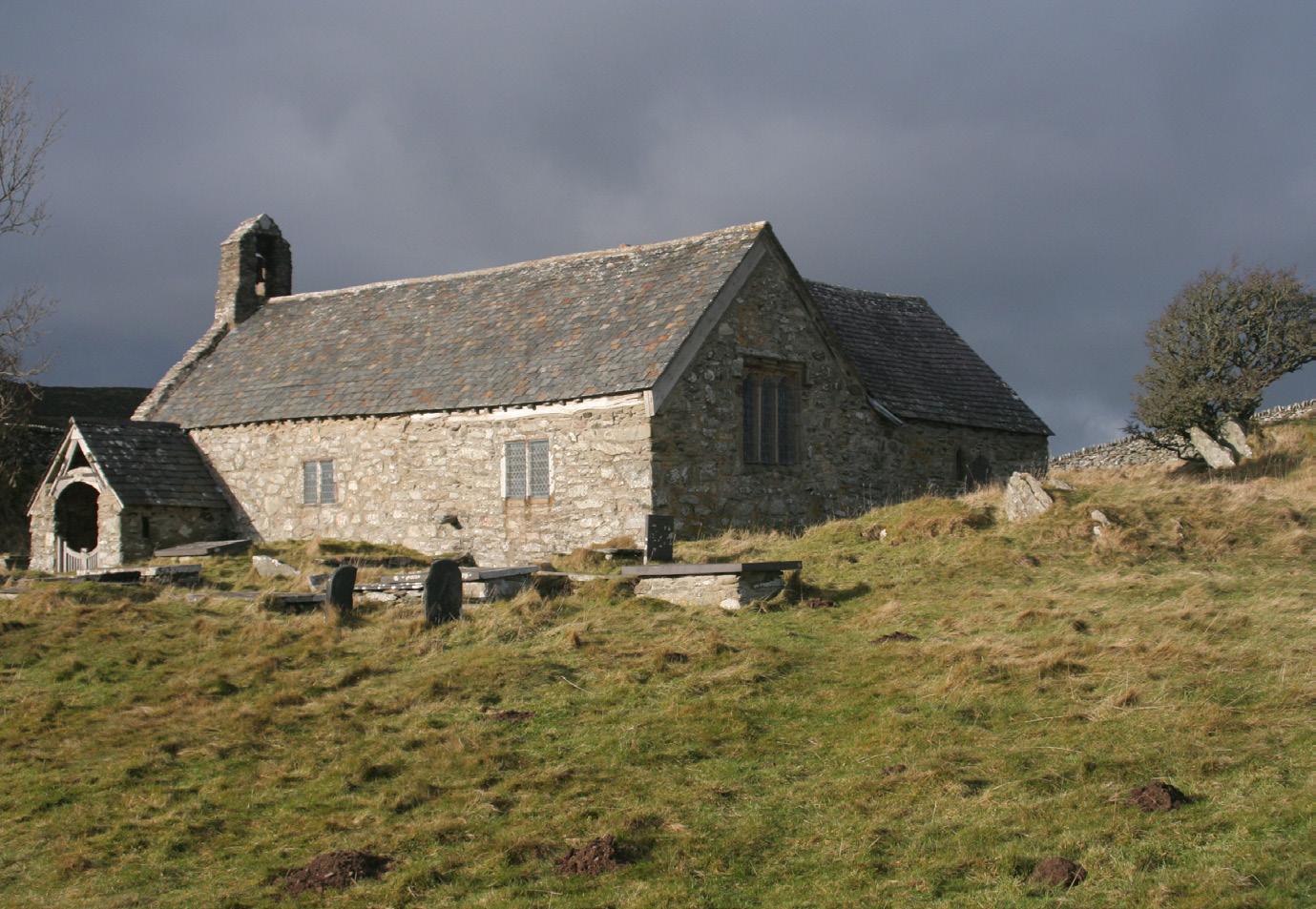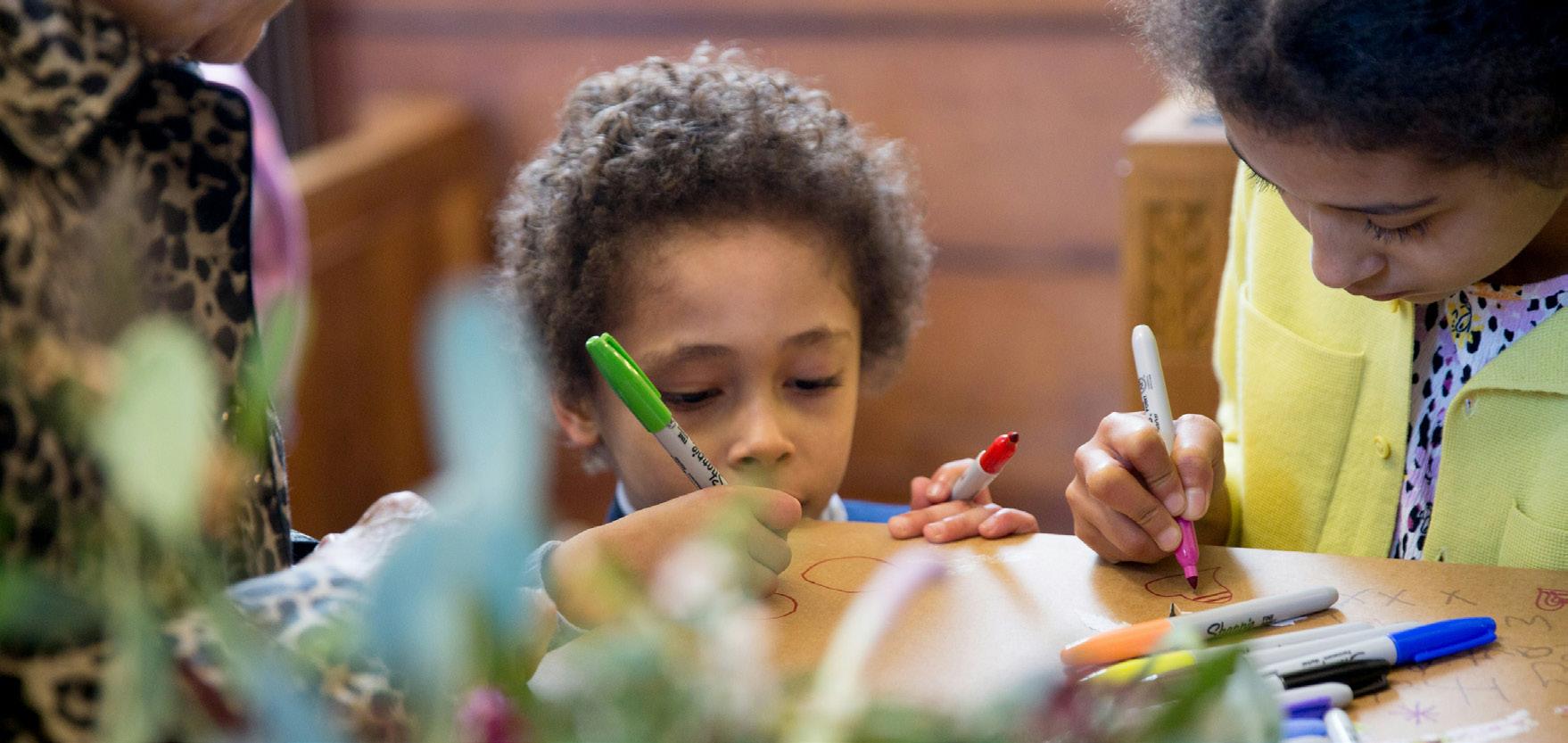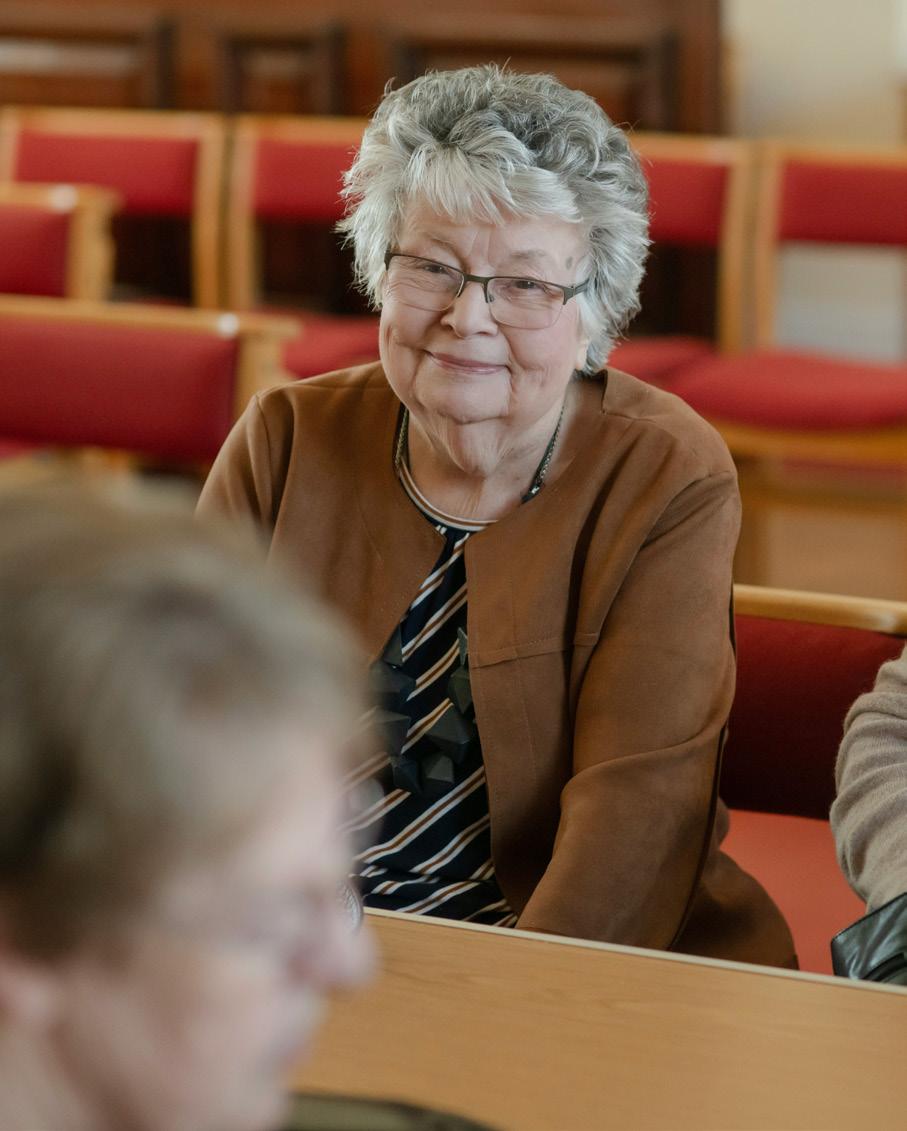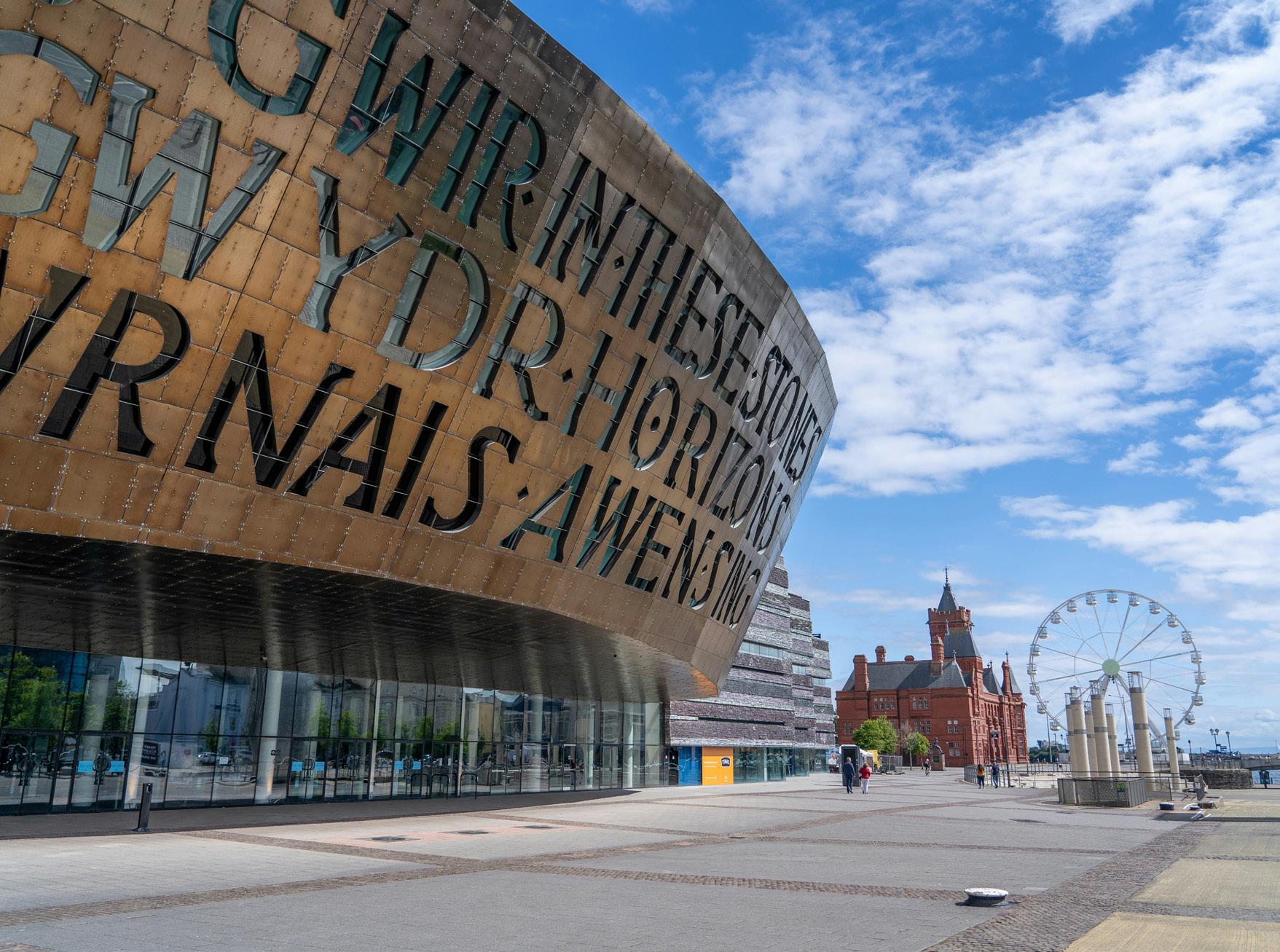Faith in Wales

together making Jesus known evangelical alliance wales


together making Jesus known evangelical alliance wales
Back in 2008, Gweini, The Council of the Christian Voluntary Sector in Wales, in partnership with the Wales Council for Voluntary Action, published the groundbreaking report, Faith in Wales. The report identified and acknowledged the significant contribution made by faith communities to life in Wales, and provided a basis for further co-operation between faith communities and policymakers.
It is testament to the impact of the original report that it is still often quoted today, despite its publishing date. With this in mind, we felt it would be good to give the report a refresh, providing a more up-todate snapshot of the current state of play.
As you’ll see, the resulting report is extremely encouraging for faith communities, demonstrating their continued important and positive contribution to society. It also contains a challenge regarding how faith communities could be better supported in the excellent work they do throughout Wales. I hope this report will prove a helpful incentive towards further collaboration, while also providing information that will assist faith communities in their planning and service delivery.
Tim Rowlands Head of Evangelical Alliance in Wales


1
Social and community impact: Faith groups are still deeply embedded in local communities. They provide crisis support, alleviate loneliness, provide inclusive spaces and support wellbeing. Their reach often extends to those who might otherwise fall between the cracks, with 97% of faith communities offering some form of social action initiative.
2
Economic contribution: Faith communities provide at least £250 million to the Welsh economy every year through staff, volunteers and provision of premises. This is a 49% increase (after accounting for inflation) since 2008, and excludes the value of tourism, which could add further significant value.
3
Heart of the community: Places of worship are often community hubs, serving as the heartbeat of local communities. Many are also places of significant heritage and must be maintained to ensure community links with the past.
4
Mental health and resilience: Faith is strongly linked to better mental wellbeing and increased resilience in everyday life. Faith communities provide meaningful pastoral care, group activities and environments of belonging – particularly helpful at a time when over £1 billion annually is being spent on mental health by the NHS in Wales.
5
Political engagement: Faith community leaders are engaged with the political process. They are involved in consultations, election hustings and more.
1
Improve access to funding: Faith communities need better access to funding which will enable them to repair and maintain buildings. Many of these serve their communities beyond their role as places of worship.
2 Support for future projects: Faith communities are actively showing that they are willing to support their local communities further. Support is required both fiscally and legislatively to achieve the greatest impact.
3 Partner for wellbeing: There needs to be a stronger collaboration between faith groups and public services to maximise community-based care. Faith organisations can be, and already are, key allies in public wellbeing and social cohesion.
4
Strengthen unity and collaboration: Interfaith and ecumenical activities need ongoing encouragement and support across Wales. Collaboration across different traditions promotes trust, mutual respect and sustainable local development.

5
Encourage political participation: Further work can be done to improve the relationship between faith communities and policymakers to improve the lives of their local communities.
Faith communities within Wales make up an important part of the historical, social and economic fabric of Wales. In every community they provide places not only of worship, but also places which combat poverty, tackle loneliness and strengthen social cohesion.
Since the original Faith in Wales report, published in 2008, there has been a lack of statistical information regarding the role that Welsh faith communities are having within our local communities, particularly in terms of the social outreach projects run, economic benefits and political engagement that these communities have.
This report intends to bridge that gap and to develop a current understanding of the role that faith communities play in Welsh society, demonstrating the huge contribution they make, and the even greater impact they could have in the future.
Throughout this study, a faith community is defined as a group of people who meet regularly and are represented through the Welsh Faith Communities Forum and the Senedd cross-party group.
In early 2025, 201 faith communities responded to a survey over a period of eight weeks. The survey was disseminated through networks of faith communities and interfaith organisations as well as through the Senedd cross-party faith group to prioritise the widest possible response. The questionnaire was available in both English and Welsh.
The data from responses was collated and cleansed to enable analysis. This process involved structuring the data in stages to enhance coherency and minimise the risk of technical or human error.
The data in this report has been simplified to enable ease of reference and understanding. For example, in the illustration of community initiatives similar activities have been grouped together.
Across Wales, faith communities provide essential social capital to enable communities to flourish. In the places public services often struggle to reach, faith communities are present. Many of the welfare services operated through the state were pioneered by Christian innovators and social entrepreneurs. The heritage of faith in Wales is not just in the churches and mosques in every community but in the work and social provision by people of faith. This legacy has not been forgotten and is built upon in towns, villages and cities every day.
Through the Faith in Wales survey, we wanted to assess what practical measures faith communities provided to support community cohesion and ensure no-one is excluded. We asked respondents about the buildings they use, and how they are used. The responses demonstrate how the physical buildings of faith communities are themselves enablers of community cohesion.
We rent out rooms (or a hall) to community groups or for community activities
We provide rooms (or a hall) which are used free of charge
We welcome tourists and other visitors who come to see our building(s)
We rent out rooms (or a hall) to public bodies (eg social services, local colleges)
We have a purpose-built community centre
Figure 1
We rent a space for worship
One aspect of the provision of facilities by faith groups in Wales that is immediately apparent from the data is that they prioritise ensuring facilities are accessible to all people, particularly those with disabilities. These provisions often range from wheelchair access to T-loop systems for those who use hearing aids. Nearly nine out of ten facilities provide disabled access, reflecting strong recognition that inclusivity is foundational to cohesion. Such facilities ensure that no-one is excluded from participating in faith life or community activities based on physical limitations. This provision suggests that such facilities are well positioned to serve as true community hubs.
A key tangible benefit of faith communities which contributes to community cohesion is the provision of physical space for meetings and activities. More than half of the faith communities surveyed provide space for free and more rent out space for community activities – with some providing both. This is a major factor in fostering community cohesion; the data suggests that the practical sharing of facilities is a critical way in which faith communities serve their local areas.
Where faith groups rent out their space for community activities, this provides vital income generation and supports the sustainability of faith communities, while the free provision of space demonstrates a commitment to generosity and support for groups that might otherwise not have access to physical space. Local communities can also be assured of the reliability of the spaces provided by faith communities as over 77% of them fully own their buildings, thus insulating faith communities from economic changes such as rent increases and allowing them to more consistently serve their communities.


The buildings faith communities own and use often serve a variety of purposes. As well as hosting worshipping communities and providing space for community activities, many are attractions for visitors and tourists. For nearly half of the faith communities surveyed, this was a key aspect of their work. This highlights the role faith communities play as cultural and social touch points within communities, which enables them to act as bridges between residents and visitors. The buildings in which faith communities reside have often been cultural centres for towns and villages for a considerable period. Analysing the Faith in Wales survey data, the average founding year of faith communities surveyed was 1860. Faith communities are often a key part of the history of their local communities and play a leading role in maintaining that history for their community.
As well as providing space for community activities, 40% of faith communities rent out space to public bodies. This demonstrates that the range of activities that faith communities help to enable includes both local communities and the public sector. Faith communities therefore provide a vital public service in hosting civic functions or events, and this strengthens their role as integrated and embedded community assets.
For almost a third of faith communities (29%) their provision of purposebuilt community centres provides an important avenue for serving their local community. For many other faith communities, their buildings perform the function of such community centres even if not explicitly designed as such. It is therefore important that public sector bodies do not avoid using faith community buildings where they are multi-functional and serve faith groups as well as the wider community. This is particularly true for isolated, rural communities where public building space is scarce and often faith communities are a leading or only organisation that can offer purposebuilt spaces that can be used by the local community.
Around a quarter of faith communities (26%) reported that their buildings are either listed or conservation sites. This is a further way that faith communities both draw visitors to communities and serve as pivotal gathering points for societal and cultural activities. There are clearly challenges for faith communities in maintaining such buildings, and this emphasises the need for accessible funding routes. This also highlights the role of faith communities in preserving the local heritage of the community that they reside in.


As discussed in the previous section, the physical buildings and spaces owned and used by faith communities serve as hubs for building and sustaining community cohesion. However, it is the activity of faith communities to reach out to communities and provide vital services that builds on that foundation and serves all people in Wales.
We asked participants of the Faith in Wales survey which of a wide range of communityfacing activities they ran or organised themselves. The responses to our survey demonstrate the vast array of initiatives and activities that faith communities provide, often stepping in where public services are not funded, or where there are gaps in provision. Due to the number of available initiatives, some that operated within a similar sphere were grouped together to provide a clearer picture of the initiatives undertaken. The activities that make up these groupings can be found in the appendix.
Social support Family
Social activities (lunch club, co ee bar, entertainment)
Support to the elderly
Foodbank
Health
Faith support
Leadership development
Green initiatives
Support to homeless
Other
Refugee/asylum seeker support
Training/equipping
Debt/financial advice
Support to carers
Prison rehab
Street pastors (or equivalent)
Support for additional learning needs
Employment advice/advocacy
Community safety/crime prevention
Anti-racism
Job creation (community enterprise)
2
Our initial findings revealed that approximately 97% of the faith communities surveyed were involved with some form of community-facing initiative. This highlights many faiths’ fundamental value of serving others, including those who are not a part of their own faith community.
Throughout the research, it was clear that faith communities in Wales provide many relational services that are vital to the local areas they serve. The leading three initiative types revolve around family, social support and local social activities.
The family grouping involved important services including marriage support, preschool clubs and family breakdown support. Services such as these support local families in a variety of ways, such as counselling in times of family collapse and day-to-day childcare which can allow parents to return to work earlier. Additional support in this category includes youth clubs and other special events for young people, which nearly 60% and 68% of faith communities run respectively. These activities are often a very effective form of short-term childcare for parents with longer work hours. They also provide children and young people with regular interaction with peers of their own age and stage in a safe, relaxed and social environment, encouraging friendships and further social cohesion outside of a standard educational setting.
The social support category included activities such as men’s and women’s groups and regular home visits. These activities often provide participants with regular social interaction and bonding as well as an opportunity to support those with a variety of mental health issues before they would require specialist support. Alternatively, activity providers can direct those with such needs to where they can best access the support they need.
The third largest set of activities are the social activities such as cafes, lunch and coffee bars. These sorts of activities can often be a principal opportunity for friends and family to regularly meet together, which allows for the buildings of faith communities to be central to the life of a local community.

Faith communities also play an important role in serving those in need. Over 50% of the faith communities surveyed are involved in operating a foodbank. This indicates that a significant proportion of foodbanks in Wales are run by faith communities considering the UK’s largest foodbank network, Trussell, operates 1461 foodbanks in Wales and this survey can account for 105 foodbanks from the 201 faith communities surveyed. Across the many more faith communities which we did not survey there are likely to be additional foodbanks and other faith communities that support other foodbanks without running their own.

Another initiative many faith communities run is support for the homeless. According to Shelter Cymru, there were nearly 11,000 homeless people in Wales as of July 2025, so faith communities taking a leading role to address this is invaluable. Nearly 30% of faith communities reported providing some kind of support for the homeless. This ensures people receive the support that they desperately need, such as a warm space for the night, as well as improving public safety due to a reduced number of vulnerable people on the street at night.
Around a third of faith communities also provide emotional and mental health support activities, with a similar number operating green initiatives. This reflects the breadth of commitments from faith communities, from the personal and emotional to the global.
Some activities were less frequently reported (by 15% of groups or fewer), and this included disability support and advocacy for individuals (particularly relating to finance, crime or health). Education, training and employment support are also areas where faith groups may be able to expand their activity. It is notable that only 1% of those we surveyed provide Welsh language lessons or dedicated services.
1 House of Commons briefing on foodbanks in the UK. Can be found at: researchbriefings.files.parliament.uk/documents/CBP-8585/C BP-8585.pdf
Figure 3
Faith communities provide incredible economic value to Wales, both in direct services provided, usually free of charge, and the employment and services they offer.
In assessing the economic impact of faith communities, we have taken a conservative approach to estimating the overall value. The Welsh Government calculate leisure day trips to contribute an average of £35 to the economy. However, in our estimate of the economic contribution we have not included this as that level of spending is unlikely to be representative of what visitors to faithbased tourist and heritage sites spend.
From our analysis, it can be assumed that faith tourism does contribute to the Welsh economy, potentially a significant amount, and further study can be undertaken in the future to determine this.

Based on responses to the Faith in Wales survey, it is estimated that faith communities provide at least £250 million to the Welsh economy every year. Compared to the initial 2008 study, this is twice the cash amount, and approximately 49% more when accounting for inflation. This may well be related to increased pressure on local government finances, resulting in faith communities attempting to fill the gap for their locality.
The faith communities of Wales provide significant value to the local economy by employing staff members. This can include ministers, administrators and local community workers. From the 2025 edition of the Faith in Wales survey, it has been found that approximately £79.2 million (greater than the total budget assigned to economy, energy and planning in the 2025–26 Welsh budget 2) annually is spent on salaries. This value accounts for the hours worked in local community projects and initiatives and is likely to be an underestimate due to the additional time planning and administrating such initiatives.
2 Welsh government budget 2025-26. Can be found at: gov.wales/final-budget-2025-2026
Within Wales, faith communities provide a significant volunteering workforce to run and support local community initiatives including local playgroups and foodbanks. Assuming these volunteers were paid at the national living wage of £12.60 per hour, it would cost approximately £115.1 million per year to employ them. This is money that would otherwise be spent by local government, charities and other organisations to ensure the same service is fulfilled. This vastly assists the local communities that these volunteers serve in as they allow services and initiatives to run consistently at a much lower cost than would otherwise be the case. If not for these volunteers, the funding gap would have to be bridged, most likely by local governments which are increasingly coming under financial strain, potentially resulting in poorer outcomes for residents in both the quality and consistency of these initiatives.
Many faith communities offer space in their buildings for free or at low cost. Based on an average hourly rate of hire of £20.07 3, we have calculated that the free space offered equates to more than £17.6 million each year.
A further £38.6 million is provided through the provision of space rented for community use at a cheap or discounted rate. This can allow community-based organisations to come together at a much more frequent rate than would otherwise be possible by providing a reliable, well-maintained and affordable space. This rental income also supports the work of faith communities as it provides them with a diversified income beyond internal donations and public funding.
The total economic contribution to the Welsh economy, estimated at £250 million, is significantly higher than the Welsh government’s social justice budget of £159 million. This highlights the valuable and significant work that faith communities do in service of their local communities.
3 Calculated as the average rent charged by faith communities for external users as reported in the survey
It is clear from the responses to the Faith in Wales survey that faith communities are a vital part of life in Wales and provide a vast array of support and provision. This enables people to escape poverty, find jobs, build community and strengthen neighbourhoods. However, it is also clear that there is significant scope for more. In this final section, we consider, first, the aspirations of faith communities, and then how funding and better political engagement could increase the contribution of faith communities.
Job
enterprise)
Support to carers
Employment training/work experience
Refugee/asylum seeker support
Community safety/crime prevention
Anti-racism
Street pastors (or equivalent)
Debt/financial advice
Support for additional learning needs
Support to homeless
Leadership development
Support to the elderly Foodbank Other Green initiatives
Social activities (lunch club, co ee bar, entertainment)
Figure 4

While faith communities provide many services for their local communities, the Faith in Wales survey highlighted that there is still more that they feel can be done. Approximately 77% of faith communities had a desire to start up more projects to support their local community. As part of the survey, participants were asked what community initiatives they would like to start soon. As faith communities are smaller, locally focused organisations, this analysis can provide insight into the current needs of Welsh communities and has the potential to inform policymakers on areas of policy to develop. As can be seen in figure 4, the group of activities related to health has gone from sixth on the initiatives currently being undertaken (figure 2) to second on the aspirational list of initiatives. This group contained activities such as supporting those with long-term illnesses, mental illnesses and addictions. Many of these initiatives can help support existing social and health related services in local communities as they can become the first port of call for individuals seeking help in challenging situations. This could help reduce the strain on NHS resources, especially primary care institutions, which can easily become overwhelmed. Support for these initiatives could result in many communities throughout Wales having easy access to highquality initial care run at a fraction of the cost compared to state-run enterprises due to the volunteer hours and additional funds provided by faith communities.
While internal funding from within faith communities to commence and continue local projects is vital, the Faith in Wales survey has shown that additional funding has been sought out regularly throughout Wales. This additional funding has been sourced from a variety of locations, from Welsh and local government grants to Lottery funding. This additional funding has been used in a variety of ways, from setting up local initiatives to repairing buildings. While respondents expressed throughout the survey that these sources of funding were often important and allowed for local initiatives to get off the ground, they often found it difficult to access these grants. Reasons mentioned for the difficulty included the complexity and the time-consuming nature of the application process. Various respondents mentioned having to employ grant writers to fill out the applications correctly and in a timely manner. Faith leaders also felt that despite funding being requested for entirely community-based initiatives, there was friction from funders due to the organisation requesting it being faith based. Faith leaders also reported that if their funding request was accepted, sometimes they were not provided with the full amount requested, which could result in large funding gaps that faith communities had to bridge with their own – often limited – resources.

Been to election hustings
Had a role as a public representitive
Engaged in government consultation
Figure 5
From the research conducted by the Faith in Wales survey, a significant proportion of faith communities engage in some way with the political process. Over a fifth of faith communities reported that they engaged in government consultations allowing for people of faith to have their voices heard on important legislation such as the Draft Disabled People’s Rights Plan and the Violence against women, domestic abuse and sexual violence national strategy. This is nearly double the UK average of 13% 4. Over a quarter of faith communities also report their members attending an election husting, allowing direct interaction with incumbent and prospective local and national representatives. Despite the existing political engagement with faith communities, the Faith in Wales survey also showed that approximately 39% of faith leaders would like greater engagement with the political process. This could come in the form of visits to these faith communities by local representatives to understand their unique needs, meeting with local faith leaders or attending faith-based services.
In addition to providing for their local communities, over 79% of faith communities send overseas aid for both international development and in times of great international need such as natural disasters. This additional giving overseas will help Wales to be seen internationally as a nation that plays its part on the global stage, particularly in times of great need.
4 2023 Office of National Statistics report on trust in government. Can be found at: ons.gov. uk/peoplepopulationandcommunity/wellbeing/bulletins/trustingovernmentuk/2023#:~:text=5.,Political%20engagement,on%20issues%20of%20national%20 importance
This report provides a statistically grounded understanding of the historical, social and economic impact that faith communities have throughout Wales. It demonstrates that faith communities contribute approximately £250 million each year to the Welsh economy through voluntary hours, paid staff and meeting spaces both for free and at a lower than market value rate.
The wide range of community initiatives highlights how faith communities are meeting the needs of their local areas. This report has also shown the willingness of faith communities to develop and start more community-facing initiatives and has shown a potential funding gap which, if bridged, could unlock improved community cohesion, better poverty outcomes and improved health outcomes, both mental and physical. This study has also highlighted potential pitfalls of public funding, ranging from barriers to access to time consuming applications, showing that more must be done to improve the accessibility of these funds for faith communities. Finally, this report highlights how faith communities are engaged politically. The Faith in Wales survey shows that faith communities are actively engaging with the political process, whether by participating in public consultations or attending election hustings.
This report brings important insight into the contribution of faith communities, why further work is needed to better understand their impact, and how the public sector can best support them. Faith communities play a critically important role within our local towns and villages and across our nation. Better support from government and engagement with wider civil society will strengthen this further and together help improve life in Wales for all.


